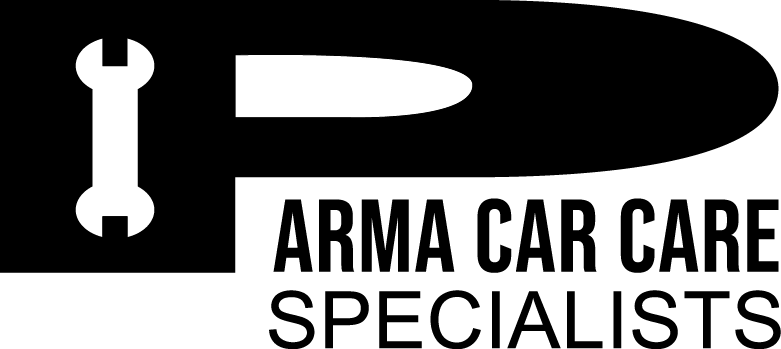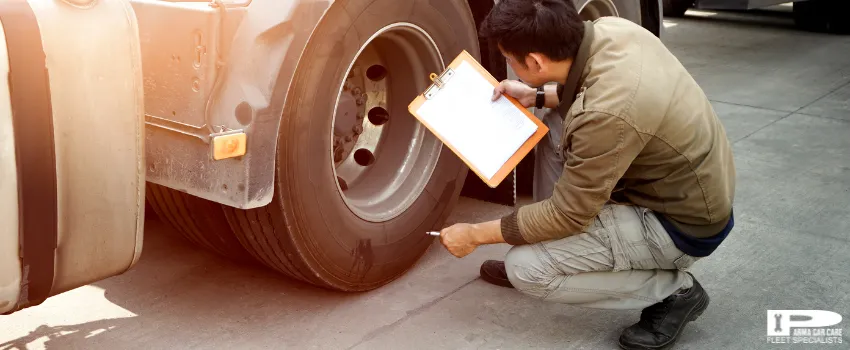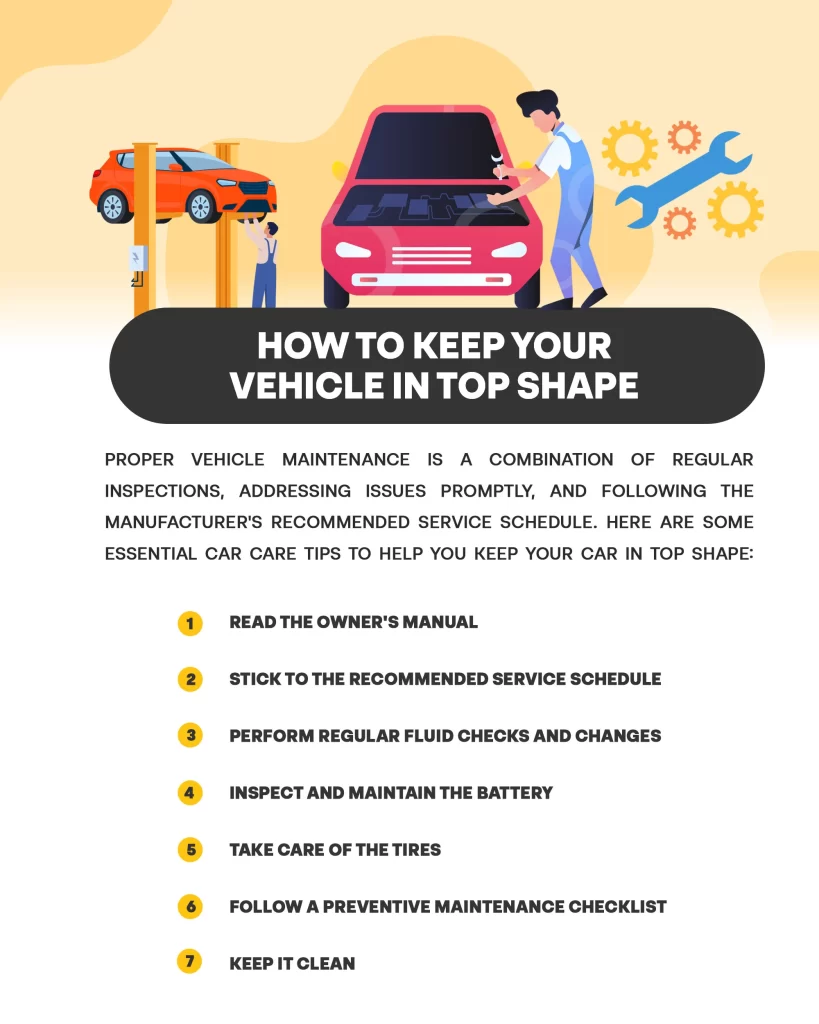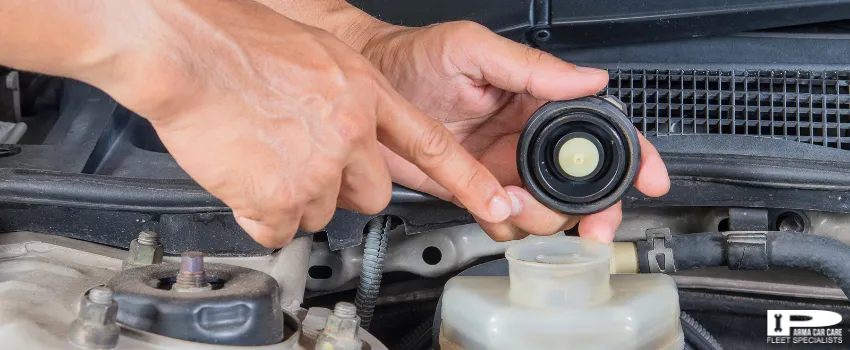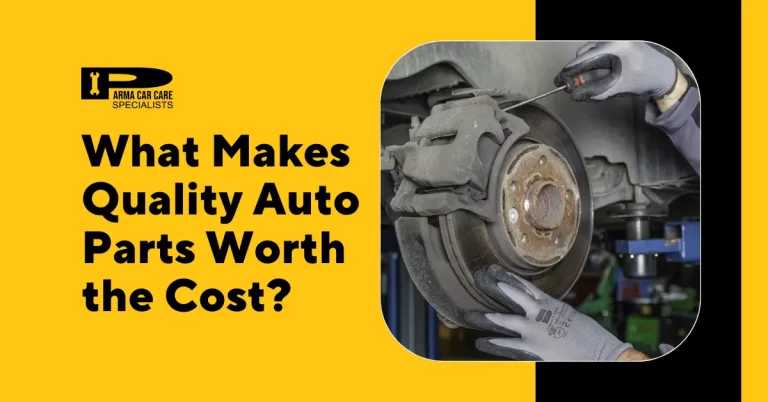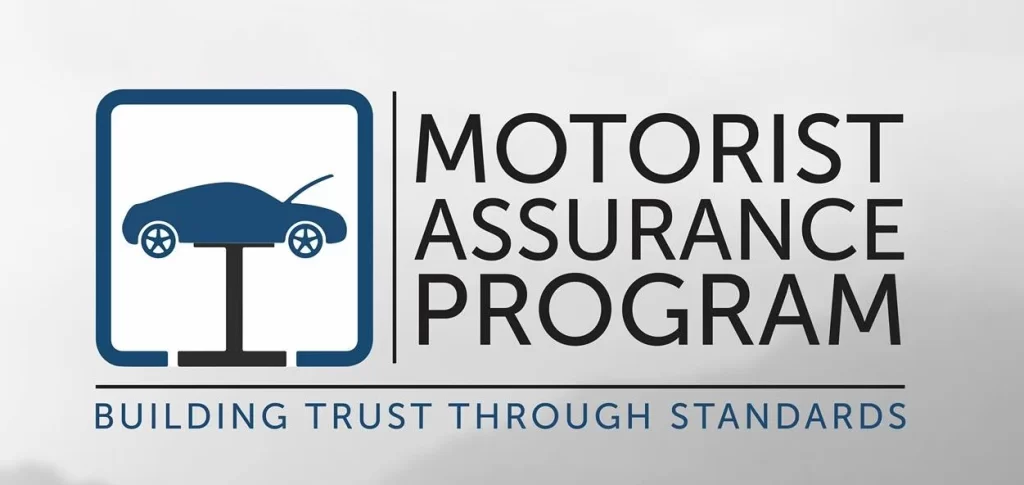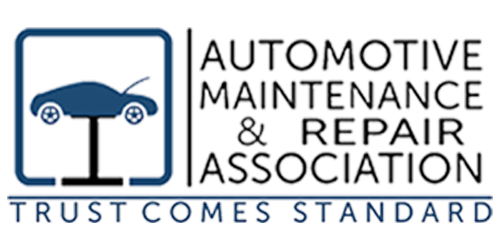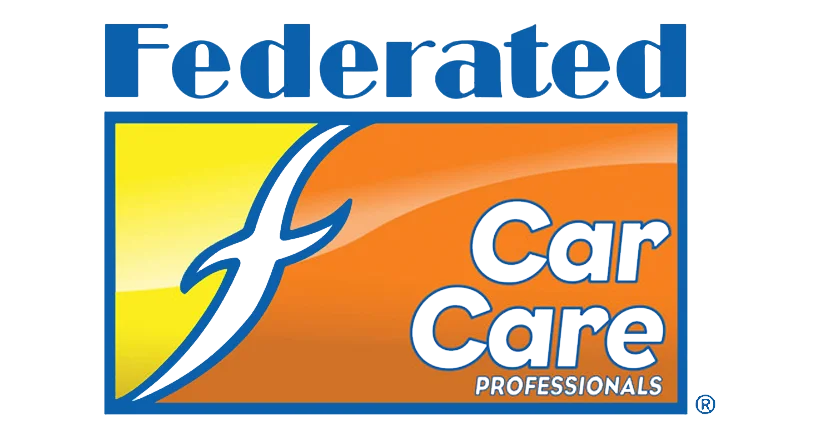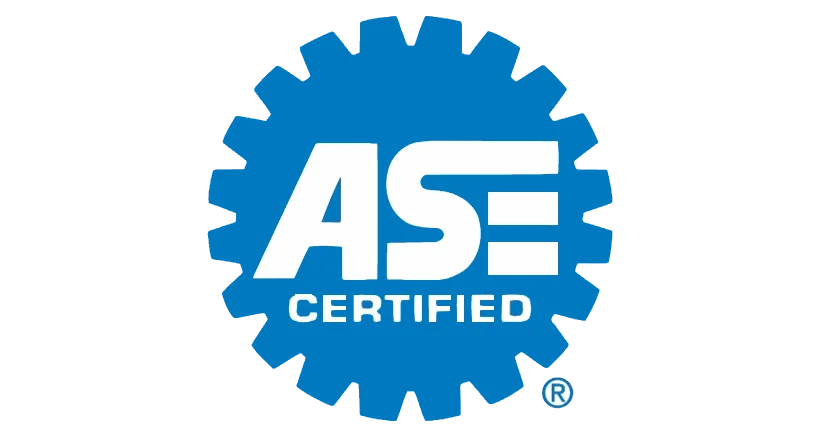Whether you use your car for daily commutes or long road trips, it’s a significant investment that requires proper care and attention. Like any other machine, vehicles undergo wear and tear over time, and regular maintenance is necessary to maintain their performance and reliability.
Car maintenance is inspecting, servicing, and repairing your vehicle to ensure its optimal performance, longevity, and safety. It involves taking proactive measures to prevent breakdowns and addressing any issues promptly. In this vehicle maintenance 101 guide, we’ll walk you through the general procedures for servicing and caring for your car.
Why is vehicle maintenance important?
Vehicle maintenance is like preventive care for your car. Just as you’d go to the doctor for check-ups to catch any health issues early on, taking your vehicle for regular maintenance can help spot and fix problems before they turn into expensive repairs. Plus, a well-maintained car can give you a smoother, safer ride and even save you money in the long run.
For example, imagine that you’re driving down the road, your car functioning without any problems. But then, out of nowhere, it starts making weird noises and sputtering. You pull over and call a tow truck, and guess what? The mechanic tells you that if you had taken better care of your car or truck, you could have avoided this whole mess and the hefty repair bill that comes with it.
Now, here’s the thing—car breakdowns can happen to anyone, but many of them are preventable with regular car or truck maintenance. When you take the time to look after your vehicle, you’re giving it the best chance to stay in good working order and avoid those inconvenient and sometimes expensive trips to the auto shop. So, if saving money and avoiding the stress of unexpected breakdowns sounds good to you, then buckle up and keep reading for some essential car care tips.
What are the different types of vehicle maintenance?
The different types of vehicle maintenance can be categorized into two main groups: routine maintenance and as-needed maintenance.
1. Routine Maintenance
Routine vehicle maintenance includes regular tasks that should be performed based on a specific time frame or mileage. It ensures that the car’s basic components are in good condition. Here are some examples of routine car and truck maintenance:
-
Oil and filter changes – These are typically required every 3,000 to 7,500 miles, depending on the vehicle and the type of oil used.
-
Tire rotations and inspections – These are recommended every 5,000 to 7,500 miles to promote even tire wear and check for any potential issues.
-
Fluid checks and top-ups – This includes monitoring the levels of essential fluids, such as coolant, brake fluid, and transmission fluid, and refilling them as needed.
-
Battery service – This involves inspecting the battery for corrosion and ensuring secure connections.
-
Brake system inspections – These are typically recommended every 12,000 to 15,000 miles and involve checking the brake pads, rotors, and other components for wear.
-
Filter replacements – This includes replacing the air filter, fuel filter, and cabin air filter as specified by the vehicle manufacturer.
-
Belts and hoses inspections – These are performed to check for any signs of wear or damage.
2. As-Needed Maintenance
As-needed vehicle maintenance, as the name suggests, is performed when a specific component or system requires attention. The timing of this type of maintenance can vary greatly depending on the vehicle and its usage. Examples of as-needed vehicle maintenance include:
-
Brake system repairs– This can consist of replacing worn-out brake pads, repairing brake fluid leaks, or addressing any other brake-related issues.
-
Engine tune-ups – These are performed to optimize the engine’s performance and can involve replacing spark plugs, ignition coils, and other worn-out components.
-
Suspension and steering repairs – These are necessary when there are signs of wear or damage, such as excessive bouncing or difficulty in steering.
-
Exhaust system repairs – This includes fixing any leaks or addressing other issues that can affect the vehicle’s emissions and overall performance.
-
Electrical system repairs – This type of maintenance is needed when there are problems with the car’s electrical components, like the starter, alternator, or battery.
-
Transmission service – This can involve fluid changes, filter replacements, or other necessary repairs to ensure the proper functioning of the transmission.
Truck Care vs. Car Care: What’s the Difference?
When it comes to vehicle maintenance, one common question that arises is whether cars and trucks need the same level of care. While the goal is the same – to keep the wheels turning smoothly – there are a few differences in the maintenance needs of these two.
Trucks are built for heavy-duty tasks, like hauling and towing, which means they generally face more wear and tear than your average car. Due to these differences in usage and design, truck maintenance often requires more frequent and specialized attention than cars.
So, if you own a truck, don’t be surprised if it demands a bit more of your time and wallet for truck maintenance. Here are a few key differences in car and truck care:
Specialization
Trucks are built for heavy-duty tasks, like hauling and towing, which means they endure more wear and tear than the average car. Because of this, truck care often requires specialized maintenance and components. So, if you own a truck, it’s essential to find a mechanic who is well-versed in the intricacies of these larger vehicles.
Maintenance Frequency
The second difference lies in the frequency of maintenance. As we mentioned earlier, different cars have different maintenance needs, but trucks generally require more frequent attention. The reason behind this is simple – the more work a truck does, the quicker its parts wear out. So, if your truck is your business’s lifeline, expect to spend more time in the truck maintenance lane.
Cost Considerations
Last, but not least, get ready to open your wallet a bit wider for truck maintenance. Compared to regular car maintenance, truck service can be more expensive due to their specialized parts and the complexity of their systems. It’s a trade-off for the added capability and durability that trucks bring.
How to Keep Your Vehicle in Top Shape
Proper vehicle maintenance is a combination of regular inspections, addressing issues promptly, and following the manufacturer’s recommended service schedule. Here are some essential car care tips to help you keep your car in top shape:
1. Read the owner’s manual.
The owner’s manual is your initial car care guide. It contains essential information about your vehicle’s specific maintenance needs, including the recommended service schedule and the type of oil, filters, and fluids to use. Read the car care tips thoroughly and keep it in a safe place for reference.
2. Stick to the recommended service schedule.
The manufacturer knows your car best, so it’s essential to follow the recommended service schedule for vehicle maintenance and inspections. This schedule typically includes oil changes, filter replacements, tire rotations, and other necessary checks based on mileage or time intervals. Regular vehicle maintenance at the specified intervals can prevent major issues and keep your warranty intact.
3. Perform regular fluid checks and changes.
Fluids are the lifeblood of your car, so regular checks and changes are a must for car and truck care. This includes engine oil, coolant, transmission fluid, brake fluid, and power steering fluid. The key here is to check the fluid levels regularly and look out for any leaks or signs of contamination. Dirty or low fluids can cause significant damage to your car’s engine and other systems.
4. Inspect and maintain the battery.
In the car care guide, the battery should not be overlooked. Corrosion and loose connections can drain the life out of your battery, so it’s essential to keep it clean and secure. Regularly inspect the battery for any signs of wear and test its voltage if it’s over three years old. A dead battery can leave you stranded, so addressing battery-related issues promptly is crucial.
5. Take care of the tires.
Tires are your car’s shoes, and worn-out shoes can be dangerous. To care for your tires, you should:
- Check the tire pressure at least once a month – Underinflated or overinflated tires can affect your car’s handling and fuel efficiency. Grab a tire pressure gauge and check the pressure at least once a month or before long trips. The recommended tire pressure can be found in the owner’s manual or on a sticker on the driver’s side door jamb.
- Inspect the tires for wear and tear. – Regularly check the tires for any signs of wear, such as uneven tread, bulges, or cracks. If you notice excessive wear, it may be time for a replacement. To make your tires last longer, get them rotated and balanced as the manufacturer recommends.
6. Follow a preventive maintenance checklist.
Prevention is better than cure, and this applies to your car and truck too. Following a preventive maintenance checklist can save you from costly repairs. Here are some preventative vehicle maintenance tips:
- Replace worn-out belts and hoses – These components can cause significant engine problems if they fail. Inspect them for any signs of wear, such as cracks or fraying, and replace them as needed.
- Change the air filter regularly – A clean air filter is essential for good engine performance. Check the filter at every oil change, and if it’s dirty, replace it. Driving with a clogged air filter is like breathing with a stuffy nose – it can reduce your car’s power and efficiency.
- Inspect the braking system – Brakes are your car’s best friend regarding safety, so you don’t want to ignore them. Listen for any unusual noises and pay attention to how the brake pedal feels. If it’s spongy or hard to press, you should get it checked by a professional. Remember, early detection and repair of brake problems can prevent accidents.
- Check the lights – Properly functioning lights are vital for your safety and the safety of other drivers. As part of your car and truck routine, regularly check all the lights on your car, including the headlights, taillights, brake lights, and turn signals, to ensure they work correctly.
7. Keep it clean.
Regular car washes are not just for vanity; they can help prevent rust and prolong the life of your vehicle’s paint. Road salt, bird droppings, and other grime can damage the paint if left unattended. So, wash your car occasionally as part of your car and truck care. Remember to clean the interior to maintain its value and overall aesthetics.
8. Listen to your car.
Your car has its language, and you should be a good listener. Pay attention to any new or unusual sounds, vibrations, or odors. These can be warning signs of underlying problems. If something doesn’t sound or feel right, don’t ignore it; get it checked by a qualified mechanic.
9. Plan for emergencies.
Even with all the proactive vehicle maintenance, emergencies can still happen. It’s wise to be prepared by having an emergency kit in your car. This kit should include a spare tire, jack, and lug wrench, as well as jumper cables, a flashlight, and a first-aid kit. Being prepared can save you time, money, and stress in case of unexpected breakdowns.
10. Drive with care.
Last in this list of truck and car care tips is driving with caution. Reckless driving and aggressive maneuvers can put unnecessary stress on your vehicle and increase the risk of accidents. So, follow traffic rules speed limits, and avoid sudden starts and stops. Safe driving not only protects your car but also yourself and others on the road.
The Bottomline
In today’s fast-paced world, your vehicle is an essential part of your daily life. Whether you rely on it for your daily commute or exciting road trips, proper car and truck maintenance is the key to keeping it in top shape. In this comprehensive car care guide, we’ve explored the importance of regular maintenance, the different types of maintenance required, and the distinctions between car and truck care.
Remember, taking a proactive approach to vehicle maintenance not only ensures your safety and the longevity of your vehicle but also saves you from unexpected repair costs down the road. By following the manufacturer’s recommendations and this car care guide, conducting routine checks, and addressing issues promptly, you can enjoy a smoother and more reliable driving experience.
Take charge of your vehicle’s well-being with Parma Car Care!
When it comes to reliable and professional car and truck care in Parma Heights, OH, Parma Car Care is your trusted partner. Don’t leave the health of your vehicle to chance. Contact us today to schedule your next maintenance appointment and ensure your car or truck stays in peak condition. Your vehicle deserves the best, and Parma Car Care is here to deliver just that.

